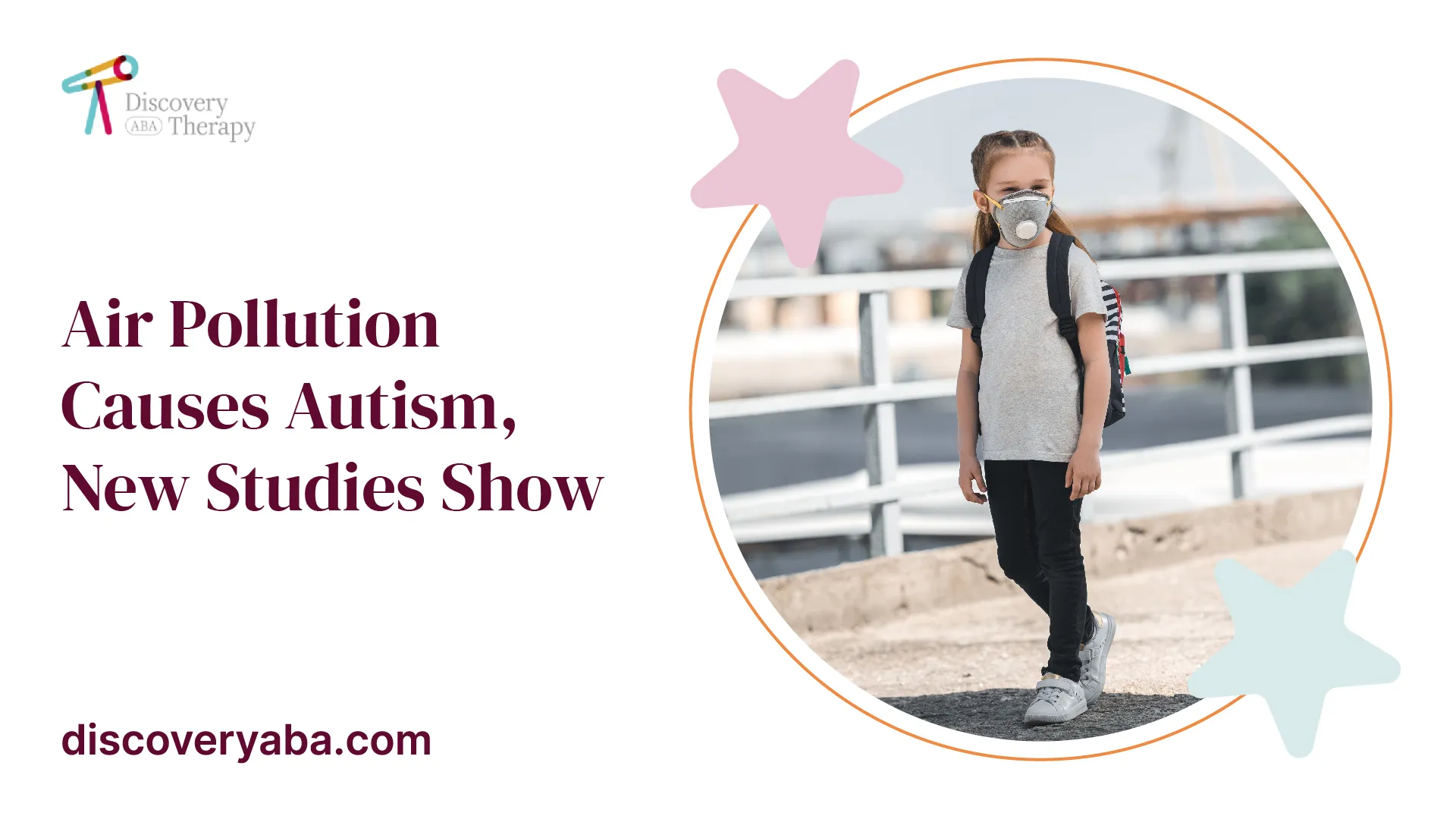Air Pollution Causes Autism, New Studies Show
Studies have shown that air pollution is linked to an increased risk of autism in children, and the risk is higher in boys.

Does Air Pollution Cause Autism?
Air pollution is a growing concern around the world, as it is known to cause numerous health problems such as heart disease, stroke, and lung cancer. Studies have shown that air pollution exposure during pregnancy is associated with an increased risk of autism spectrum in children, and the risk appears to be greater in boys.
Recent research has suggested that air pollution may also have an impact on the development of autism in children.

Autism Spectrum Disorder (ASD) is a neurodevelopmental disorder that affects communication, social interaction, and behavior. The exact causes of ASD are still unknown, but it is believed to be a combination of genetic and environmental factors.
Numerous studies have been conducted to investigate the link between air pollution and autism. One such study conducted by Harvard School of Public Health found that exposure to fine particulate matter (PM2.5) during pregnancy was associated with an increased risk of autism in children.
The study analyzed data from 116,430 women in the Nurses’ Health Study II and found that those who were exposed to higher levels of PM2.5 during pregnancy had a 1.5 times higher risk of having a child with autism compared to those who were not exposed to high levels of PM2.5.
Another study conducted in Sweden found that children who were exposed to high levels of air pollution during their first year of life had a higher risk of developing autism.
The study analyzed data from 4,779 children and found that those who were exposed to high levels of air pollution had a 1.5 times higher risk of developing autism compared to those who were not exposed to high levels of air pollution.
The exact mechanism by which air pollution may contribute to the development of autism is not fully understood. However, it is believed that exposure to air pollution during pregnancy may lead to inflammation and oxidative stress, which may affect the developing brain of the fetus.
In addition, exposure to air pollution during the first year of life may also affect the developing brain of the child, leading to the development of autism.
Air pollution is not the only factor that may contribute to the development of autism. Other factors such as genetics, maternal health, and lifestyle factors may also play a role.
Air Pollution Linked With Increased Risk of Autism in Children
Studies have shown that there is a link between air pollution exposure and an increased risk of autism spectrum disorder (ASD) in children.
The research suggests that exposure to fine particulate matter (PM2.5) during pregnancy or the first year of life may lead to inflammation and oxidative stress, which could affect the developing brain of the fetus or child, potentially leading to ASD.
Furthermore, recent studies have suggested that air pollution may not only increase the risk of developing ASD but also the severity of symptoms in children who have already been diagnosed with the disorder.
A study published in JAMA Pediatrics found that children with autism who were exposed to higher levels of PM2.5 had more severe symptoms than those who were exposed to lower levels.
While it is important to note that air pollution is not the sole cause of ASD, these studies suggest that reducing exposure to air pollution could be an important step in lowering the risk of developing this disorder.
FAQs
What is air pollution?
Air pollution refers to the presence of harmful substances in the air we breathe. These substances can include gases, particulate matter, and biological molecules.
Can air pollution cause autism?
Studies have shown that exposure to high levels of air pollution during pregnancy or early childhood may increase the risk of developing autism. However, it is important to note that air pollution is not the only factor that may contribute to the development of autism.
What are some common sources of air pollution?
Common sources of air pollution include vehicle exhaust, industrial emissions, and burning fossil fuels for energy production.
What air pollutants cause autism?
Studies have shown that exposure to fine particulate matter (PM2.5) during pregnancy and early childhood is associated with an increased risk of autism in children.
PM2.5 is a type of air pollutant that consists of tiny particles that can be inhaled deep into the lungs, causing inflammation and oxidative stress.
Other air pollutants that have been linked to an increased risk of autism include nitrogen dioxide (NO2), sulfur dioxide (SO2), carbon monoxide (CO), and ozone (O3). These pollutants are commonly found in vehicle exhaust, industrial emissions, and burning fossil fuels for energy production.
While the exact mechanism by which these air pollutants may contribute to the development of autism is not fully understood, it is believed that they may cause inflammation and oxidative stress in the developing brain, leading to changes in brain structure and function.
How can I protect myself from air pollution?
There are several ways you can protect yourself from air pollution, including avoiding areas with heavy traffic or industrial activity, using a HEPA filter in your home, and wearing a mask when outdoors in areas with high levels of pollution.
What measures can be taken to reduce air pollution?
Governments and individuals alike can take measures to reduce air pollution. These measures may include transitioning to cleaner forms of energy production, improving public transportation options, and implementing regulations on emissions from industry and vehicles.
Summary
In conclusion, the link between air pollution and autism is still a matter of ongoing research. However, the evidence so far suggests that exposure to air pollution during pregnancy and early childhood may increase the risk of developing autism.
Therefore, it is crucial to continue to monitor and regulate air pollution levels to reduce the potential risk of autism and other health problems associated with air pollution.
Does Your Child Have An Autism Diagnosis?
Learn More About How ABA Therapy Can Help
Find More Articles
Contact us
North Carolina, Nevada, Utah, Virginia
New Hampshire, Maine
Arizona, Colorado, Georgia, New Mexico, Oklahoma, Texas
.avif)




































































































